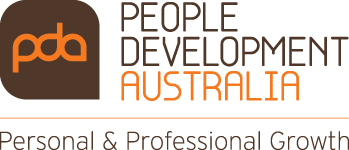Who do you trust? A friend? A work colleague? Your boss? Why do you trust this person? What is it that inspires confidence in this particular relationship? Why do you (or don’t you) enjoy working for your organisation?
These are diverse questions with many answers. But one commonality is present when people answer these questions – the issue of trust.
Trust impacts us 24/7, 365 days a year. It undergirds and affects the quality of every relationship, every communication, every work project, every business venture, every effort in which we are engaged. It changes the quality of every present moment and alters the trajectory and outcome of every future moment of our lives—both personally and professionally.
The Speed of Trust
In the personal development field, few names have as much cachet as Stephen R Covey. His book The Seven Habits of Highly Effective People (1989) is a true classic, popularising familiar terms such as “begin with the end in mind”, “put first things first”, and “seek first to understand, then to be understood”.
The Speed of Trust: The One Thing That Changes Everything (2006), was written by Covey’s son, Stephen M R Covey, and gives readers actionable direction on how to develop trust and use it to achieve better results in all aspects of life — work, home and relationships. Stephen M R Covey also describes a number of behaviours that develop and enhance trusting relationships.
The book reinforces many of the principles People Development Australia utilise within our programs on trust and an engaging workplace; trust is a key ingredient, an important culture trait and something that has measurable bottom line results.
Many leaders and organisations talk about a vague notion of trust. In actual fact, workplace trust is not vague at all and has measurable results once we break it down into its tangible component parts. Trust has a speed and an impact on bottom-line results; when trust goes up, speed goes up while costs come down.
Think of the outcomes of the 9/11 terrorist attacks; our trust in flying went down dramatically. Systems and checks have been put in place over the last decade as a reaction to that low level of trust. Subsequently the speed you can travel by air went down and the cost of travel went up. In another example Woolworths and Coles are now trusting customers to do their own checkout with self-serve checkout stations – the result is a lower staff cost and a faster checkout. Although I’m still getting use to the automation!
What level of trust is in your culture?
Say you need to pull a team of people together to complete a project within six weeks. Ask yourself: what’s the level of trust in your culture? What is the impact trust will have on the speed and cost of the project, and on your ability to execute this project effectively?
For most people, trust is hidden from view. They have no idea how present and pervasive the impact of trust is in every relationship, in every organisation, and in every interaction.
Trust is the foundation of all relationships. People want to work for organisations and managers they can trust. People buy from companies and salespeople they trust. They may not say it that way, but that’s what they inevitably do.
After laying out a solid argument for the need for increased trust in business and private life, Stephen M R Covey goes on to explore the various aspects of trust and ways we can both encourage or lose trust. He outlines 13 behaviors of trust-inspiring leaders, such as demonstrating respect, creating transparency, righting wrongs, delivering results and practicing accountability.
The strength of the book lies in its many real life applications. However one of the drawbacks is its overwhelming plethora of ideas and the organisation of these ideas.
The Elements of Trust
People Development Australia utilise the Elements of Trust in our programs based on some great Australian research to develop positive cultures within workplaces. These elements can be part of a DiSC profile program or in a stand-alone workshop.
The four Elements of Trust* are as follows:
- Congruence: I say what I mean and mean what I say. I walk the talk. I am honest and ethical.
- Openness: I am receptive to the ideas and opinions of others. I am willing to disclose what’s on my mind.
- Acceptance: Who you are is OK with me. I do not judge other people.
- Reliability: You can count on me to keep my commitments. I do my best at everything I do.
Your strengths and potential weaknesses
Most people are naturally strong in two of the Elements of Trust, competent in a third element, and must work hard on the remaining element. Which two elements come most easily to you, and which one takes the most energy? Some people struggle with being congruent because they have difficulty being straightforward with people – they do not want to hurt their feelings or alienate them. Some find being open problematic because they are naturally more private. People who have difficulty accepting are typically less tolerant, as they set high standards for themselves and can tend to be outwardly critical of others. The primary reason some people struggle with reliability is because they tend to over-commit themselves. This is common with people-orientated extraverts who like to interact with their entire environment.
Need further help with Trust?
Comment on our LinkedIn Discussion Page
Trust – the one thing that changes everything! What do you see are the key ingredients of Trust? How does trust affect your bottom line? What stories do you have on trust?
